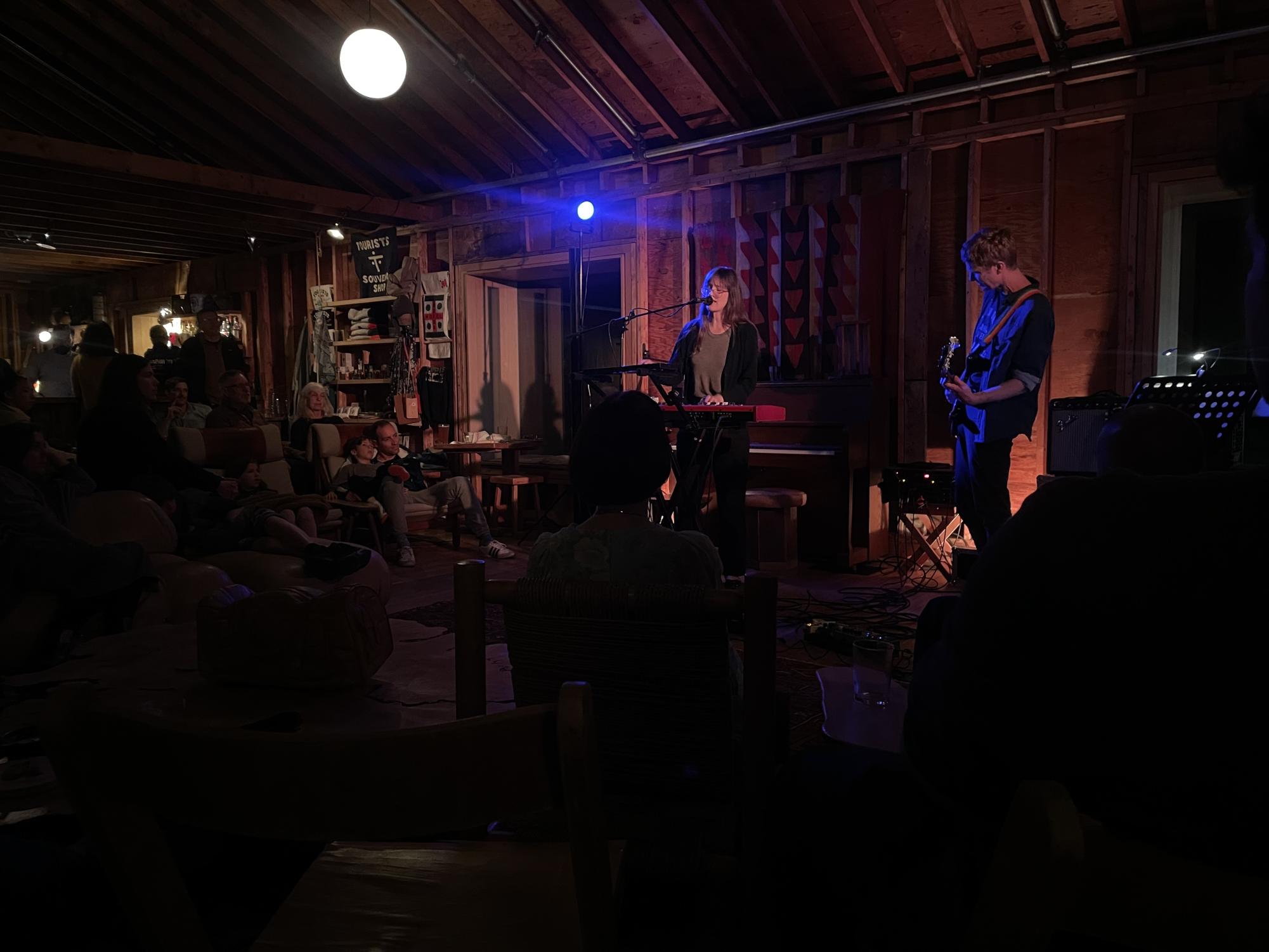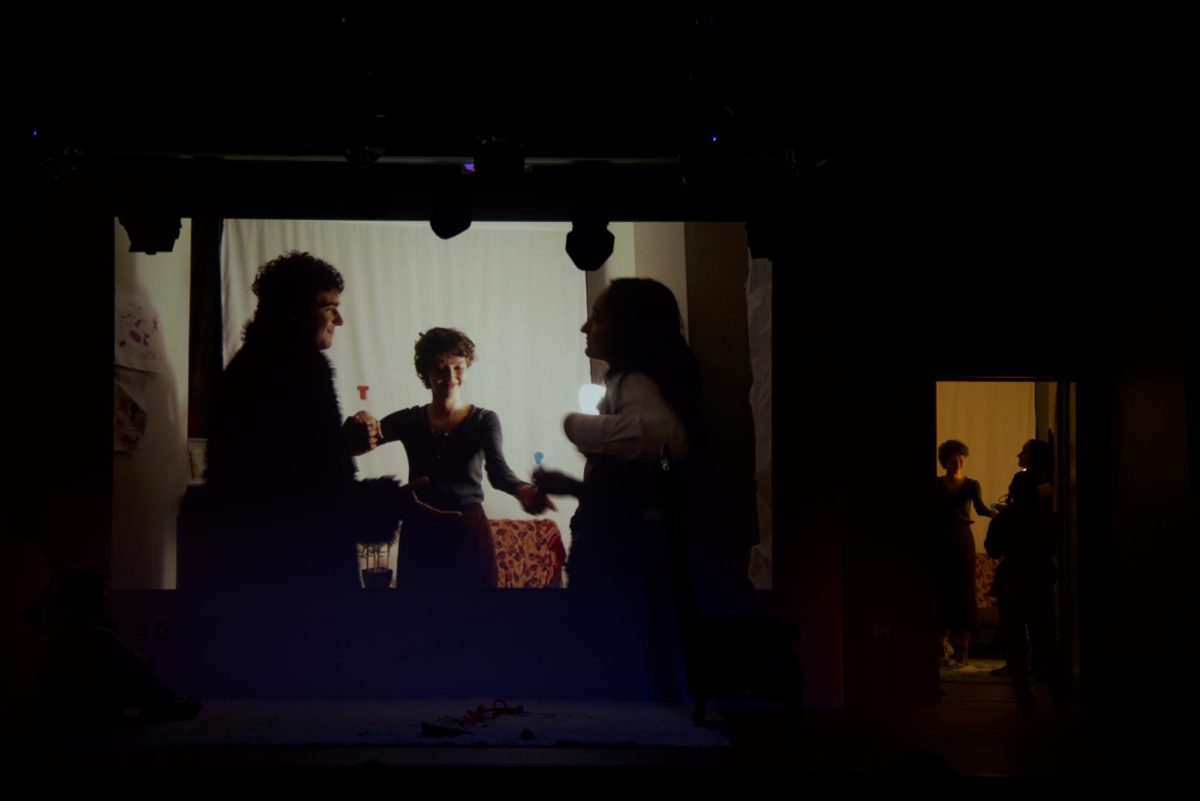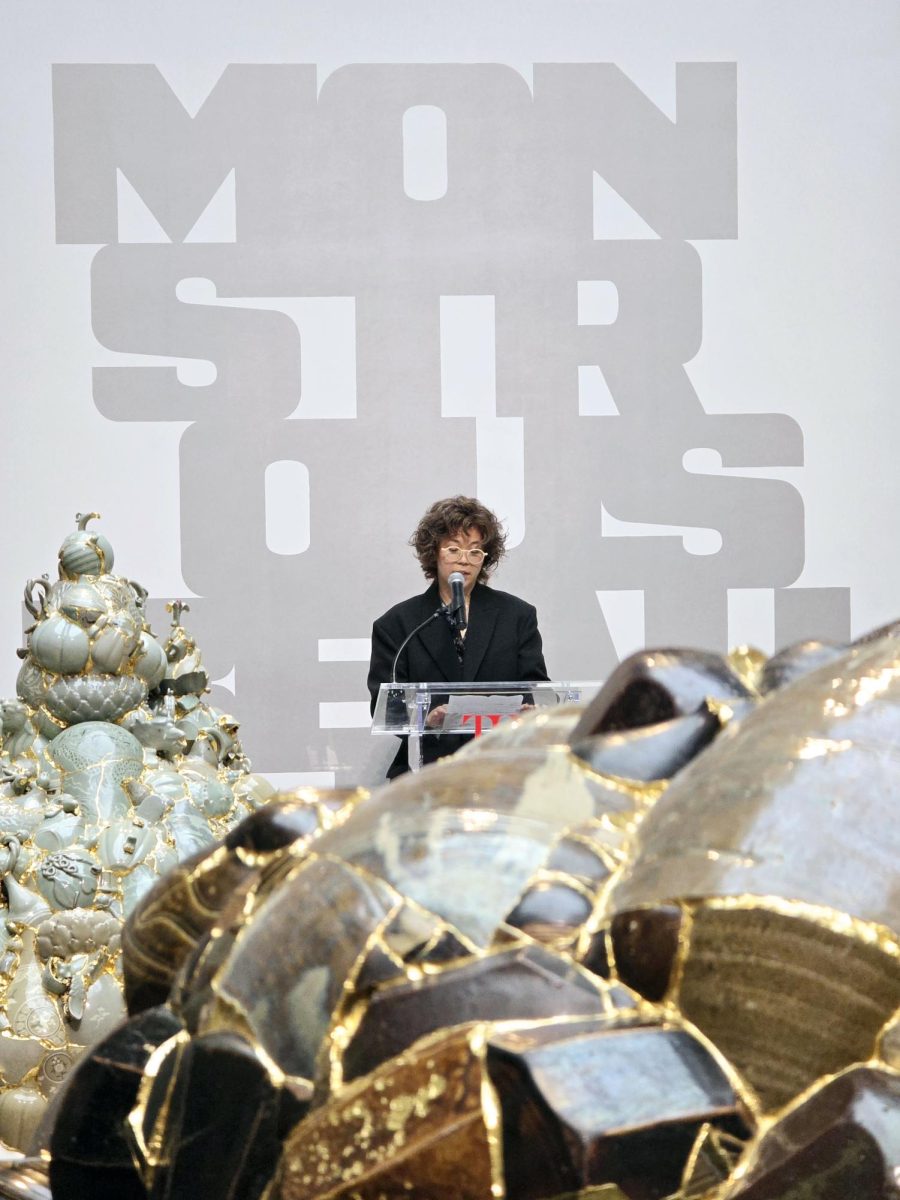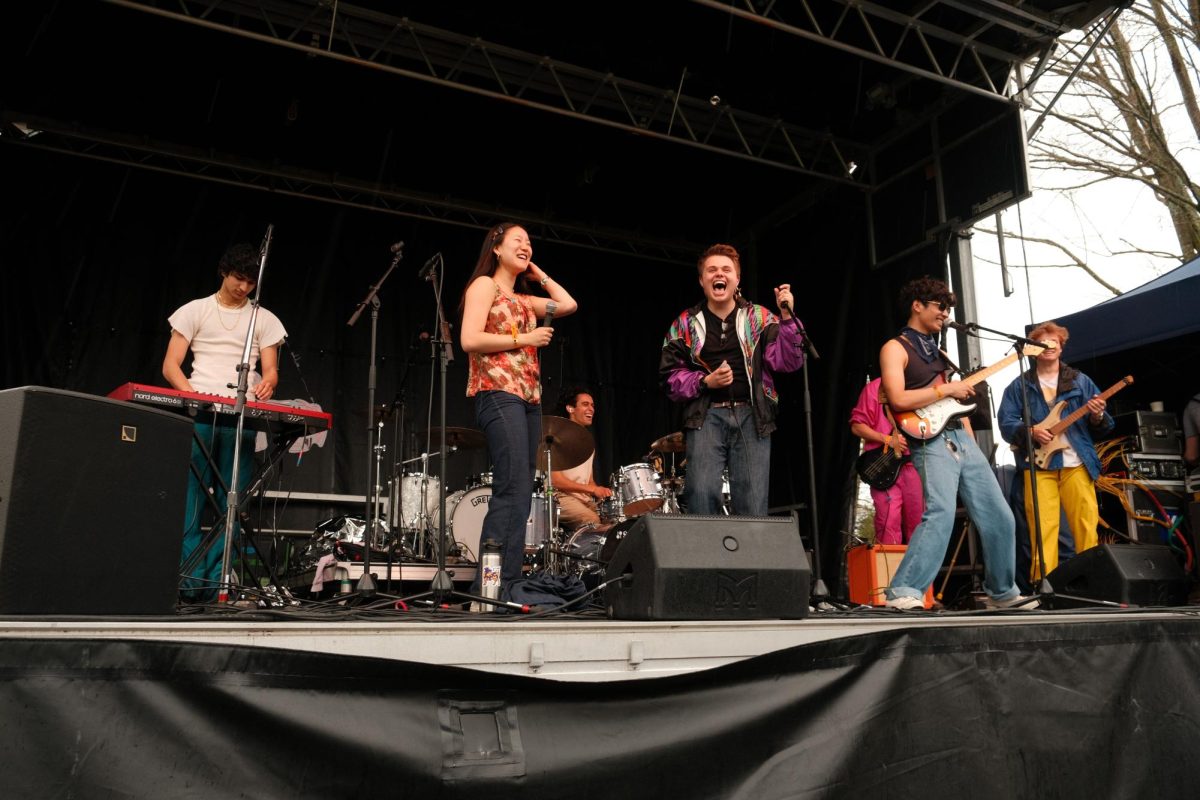
With the ease of a seasoned showman, Eric Kerns plugs in the final amps for a synthesizer, a guitar, and an electric piano. He adjusts three microphones, picking one up for himself, then quieting the eager crowd. Kerns is a founding partner and proprietor of TOURISTS, a hotel and bar in North Adams, but tonight he is putting on the 199th show of the “Sing for Your Slumber” visiting artist series.
TOURISTS, located just a few miles down the road from the College’s campus, is perhaps most easily described as a hotel. Last year, it was awarded two Michelin keys — the hotel industry equivalent of a Michelin star. The venue brings touring artists from around the world to the Berkshires on a near-weekly basis. Sing For Your Slumber, as its name suggests, has a simple premise: food, board, and hospitality in exchange for a stripped-down, low-stakes music set.
On Friday, April 18, playing in TOURISTS’ living room-like lodge was Annie Hart, a New York City-based singer-songwriter, accompanied by her husband, Doug Marvin, on guitar. The audience — ranging from groups of students to families of five — encircled the performers, nestled on couches and loveseats, enjoying the occasional cocktail.
Hart performed a varied set of songs, many newly written with a few popular staples. “I’m working now on feeling more relaxed in singing [my new songs] and almost embodying their character more,” she said in an interview with the Record. The set was scaffolded by reflection, ideation, and banter from Hart — we learned of her discovery of a new chord type and friends of hers for whom a song was written. Between songs, she also expressed her curiosity about the audience. Halfway through her performance, she kicked off her shoes and apologized to the audience members that she’d inadvertently turned her back towards.
Hart’s first performance at TOURISTS in August 2023 came courtesy of an invitation by her booking agent. Following the passing of her longtime collaborator, David Lynch, Hart described her return to TOURISTS as having a softer touch. “When David Lynch passed away, Eric texted me to say he was sorry and invited me to come back if I ever wanted to,” she said. “[Since] I was invited to play this [tribute] show in Boston, I just reached back out to Eric.”
Upon finishing her set, Hart’s first move was to continue a pre-show conversation with TOURISTS’ bartenders. She later ran into a long-lost fan, who had written to her over a decade ago and happened to live in the area. Encounters like this are very much in the spirit of Sing For Your Slumber —never prescribed, but certainly welcomed by Kerns’ vision for the series. There are no ticket sales, nor any bouncers at the door — all are welcome. There is no stage. Hospitality forms an equally important part of TOURISTS’ end of the bargain as food and board.
“It’s anti-commerce,” Kerns said. “We get to really love [musicians] up in a way that they don’t get loved up. And they get to give something in return. It’s better than money.”
Trust has been fundamental to every round of Sing For Your Slumber. According to Kerns, it’s necessary to lower the stakes for visiting artists. Even as agents get involved, Kerns asks to speak with each artist directly — so they become acquainted on a personal level — in order to confirm a booking.
Beyond this, Kerns explained, all he wants is for the artist to show up and play. “Almost nothing [is asked of the artist]. I say, ‘Try to get here around three o’clock.’ We do a quick soundcheck and then they chill. We have dinner together,” he said. “I’ve had dinner with every single person who’s played here. And then we do the show. And I say, ‘You can play whatever you want.’”
Both Kerns and Hart noted that this is certainly an anomaly in the U.S. music industry. Far more common is a “plug in and go” attitude, according to Hart, in which artists are simply shuttled on and off stage by entertainment companies attempting to maximize efficiency and profit. “We’ve been separated for so long. The ideas that Live Nation and everybody else has about what they think we want live music to be, I’m disputing,” Kerns explained. “Aiming for increased humanity wherever possible.”
Hart noted the importance in sustaining intimate, equalizing performance settings like this. “As women, you grow up and you’re in this arc of, ‘Our culture commodifies you,’ and as you age, you lose value in society,” she said. “And so for women in particular it’s incredibly important to have a sense of visibility and agency, and not just to be a character.”
This system has produced rather magical results: Kerns has successfully brought in widely acclaimed acts, including Grammy-winning Attacca Quartet, and curated special group performances, such as a residency for the experimental rock group Sunburned Hand of the Man to accompany poetry readings and silent Super 8 monster films with improvised live scores. On one occasion, the legendary guitarist J Mascis was in attendance, much to the surprise of an unsuspecting superfan hotel guest, who happened to be wearing the band’s shirt.
Although Kerns once had to scour artists’ schedules and reach out to booking managers, he now receives around six to ten requests to perform each week. Thirty-two shows are scheduled for the second half of this year.
As the number of inquiring performers has overtaken TOURISTS’ hosting capacity, Kerns has aimed to promote diversity of sound and background in the artist selection process. “We’ve had people from Australia, certainly all over the country … people from all over the place. And that’s something unique for North Adams,” he said. “To combat parochialism, you have to inject new ideas,” he said. “We’re kind of geographically isolated, and if it weren’t for the colleges, we’d be pretty racially and culturally homogenous. The more we can encourage all sorts of voices to come here, [the better it is] for everybody.”
This effort has proved successful, with a consistent audience of roughly half hotel guests and half community members, Kerns explained. “I have a little panic attack every show day around five o’clock, like, ‘Is anyone going to come?’” he said. “It’s not like you’re selling tickets and you know people are going to come. You just got to hope people are going to show up. But every time people show up.”
As Kerns put it, “The fact that it’s a gift — somehow it means more.”








